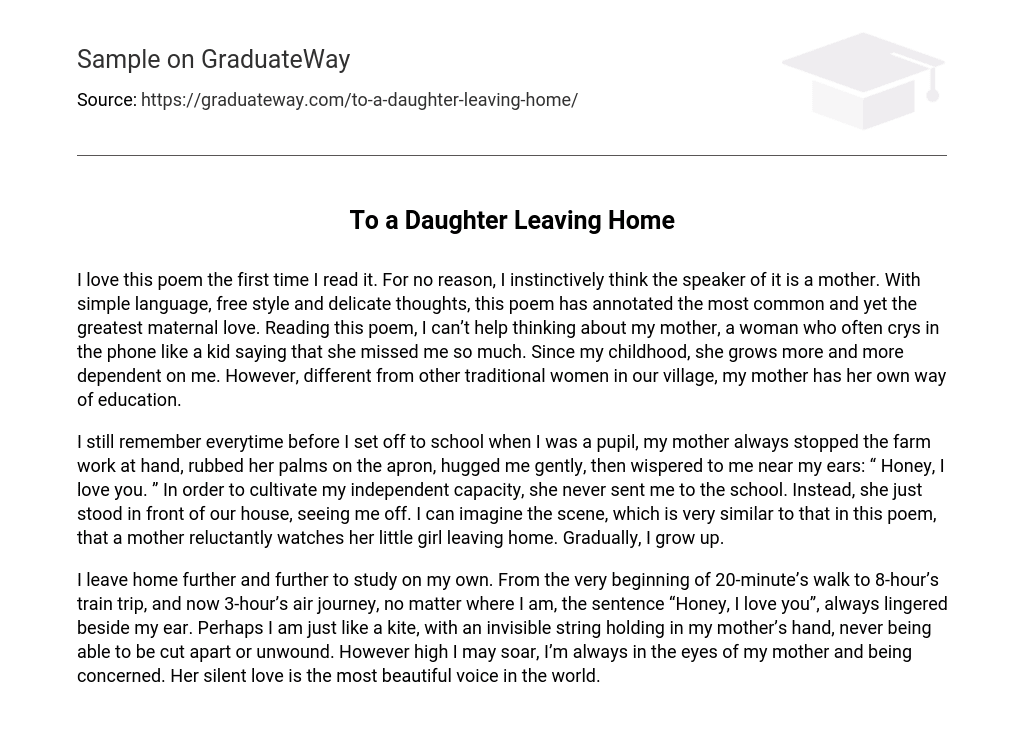I love this poem the first time I read it. For no reason, I instinctively think the speaker of it is a mother. With simple language, free style and delicate thoughts, this poem has annotated the most common and yet the greatest maternal love. Reading this poem, I can’t help thinking about my mother, a woman who often crys in the phone like a kid saying that she missed me so much. Since my childhood, she grows more and more dependent on me. However, different from other traditional women in our village, my mother has her own way of education.
I still remember everytime before I set off to school when I was a pupil, my mother always stopped the farm work at hand, rubbed her palms on the apron, hugged me gently, then wispered to me near my ears: “ Honey, I love you. ” In order to cultivate my independent capacity, she never sent me to the school. Instead, she just stood in front of our house, seeing me off. I can imagine the scene, which is very similar to that in this poem, that a mother reluctantly watches her little girl leaving home. Gradually, I grow up.
I leave home further and further to study on my own. From the very beginning of 20-minute’s walk to 8-hour’s train trip, and now 3-hour’s air journey, no matter where I am, the sentence “Honey, I love you”, always lingered beside my ear. Perhaps I am just like a kite, with an invisible string holding in my mother’s hand, never being able to be cut apart or unwound. However high I may soar, I’m always in the eyes of my mother and being concerned. Her silent love is the most beautiful voice in the world.





